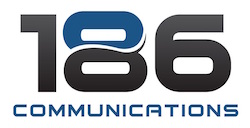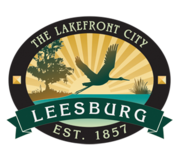
Fast, affordable Internet access for all.

If you’re a regular reader at MuniNetworks.org, listen to our podcasts, or if you simply follow publicly owned network news, you know an increasing number of communities have decided to invest in local connectivity solutions in recent years. We’ve watched the number of “pins” on our community network map multiply steadily, but every now and then, a network drops off through privatization.
FastRoads Sold To N.H. Optical Systems
New Hampshire FastRoads received America Recovery and Reinvestment Act (ARRA), which combined with state funding, created the open access fiber optic network in the southwest section of the state. Over the next several years, the network expanded with private donations and local matching funds. Many of the premises that connected to the network had relied on dial-up before FastRoads came to town. But in part because state law makes bonding for network expansion difficult, Fast Roads will no longer be locally controlled.
The Monadnock Economic Development Corporation (MEDC), a nonprofit organization whose purpose is working to see like projects are completed that will improve economic development prospects in the region managed the project. MEDC contracted with another entity to maintain the network, which cost approximately $15,000 per month. Since they had achieved their core goal - the construction and launch of the network - MEDC had been looking for another entity to take over the network or to partner with them. They recently finalized a deal to sell the network to New Hampshire Optical Systems.
 Back in 2013, Christopher spoke with Carole Monroe, who was the FastRoads Project CEO but has since moved on to ECFiber in Vermont. She described how the introduction of the network inspired incumbents to lower prices - a win for everyone, whether they connected to FastRoads or not. She also told us how community anchor institutions (CAIs) were getting better pricing and the services they needed, which meant saving public dollars. Even though the network wasn’t finished yet, it was already providing local benefits.
Back in 2013, Christopher spoke with Carole Monroe, who was the FastRoads Project CEO but has since moved on to ECFiber in Vermont. She described how the introduction of the network inspired incumbents to lower prices - a win for everyone, whether they connected to FastRoads or not. She also told us how community anchor institutions (CAIs) were getting better pricing and the services they needed, which meant saving public dollars. Even though the network wasn’t finished yet, it was already providing local benefits.
When the network was complete in 2014, it was 250 miles long and serving some businesses and households in 19 rural towns and more than 230 CAIs. Approximately 1,300 homes obtain last mile service through providers that offer Internet access via FastRoads infrastructure in several communities and in other areas it serves as a middle mile network only.
The project encountered about 18 months of delay during construction due to difficulties that arose when other entities would not cooperate by moving their cables on utility poles. The State Public Utilities Commission and the NTIA had to step in to broker a deal so the project could move forward. The delay hurt the network’s ability to expand quickly, which put it at a financial disadvantage. These pole attachment problems are a standard way existing providers harass new network builders.
NHOS purchased FastRoads assets and name. Having built an ARRA funded middle mile network that spans the state, NHOS has significant experience and resources,
Consolidation: Defeating A Purpose Of FastRoads?
One of the purposes behind FastRoads was to improve services for residents and businesses in the region who were grossly underserved, some with antiquated dial-up connections. Another reason for the infrastructure was to increase competition in an area where there was almost none. But consolidation as again come knocking.
 186 Communications is the majority owner and operator of NHOS and, according to a July 12 press release, FirstLight is acquiring 186 Communications. Over the past several years, FirstLight has acquired assets from other local companies, including segTEL, TelJet, G4 Communications, Oxford Networks, and Sovernet Communications. It’s difficult to predict what will become of FastRoads and its subscribers once it is part of a large private entity, rather than the publicly owned community network developed for the people who live in the region.
186 Communications is the majority owner and operator of NHOS and, according to a July 12 press release, FirstLight is acquiring 186 Communications. Over the past several years, FirstLight has acquired assets from other local companies, including segTEL, TelJet, G4 Communications, Oxford Networks, and Sovernet Communications. It’s difficult to predict what will become of FastRoads and its subscribers once it is part of a large private entity, rather than the publicly owned community network developed for the people who live in the region.
We touched base with Carole Monroe once more to get her thoughts. She pointed out how challenging the process was for the MDEC, partly because rules in New Hampshire don’t favor public investment:
New Hampshire is a difficult place for municipal broadband of any kind. There is little support at the state level and no state financial support at all. Municipalities are prevented from bonding for broadband infrastructure. This situation makes it difficult for the municipalities connected to FastRoads to assist in a rural FTTH expansion.
The state legislature has taken up bills to change the bonding restriction, but legislation typically gets stalled in committee. Until financing to put better connectivity is put in place, New Hampshire's rural regions are severely limited in their options to improve connectivity.
Leesburg, Florida, Considering Selling Fiber Utility
The state of Florida also discourages municipal Internet infrastructure investment, but Leesburg invested in fiber before the law came into play. Leesburg’s communications utility offers connectivity to CAIs and businesses in Lake County over a 300-mile fiber optic network. The city also uses the network for municipal needs.
 Leesburg has had the infrastructure in place since 1993; it invested in the infrastructure originally for smart grid purposes. Last year, city officials announced that they were interested in selling the communications utility but only received one offer for $1.5 million, which they deemed unacceptable. This year, they received an offer from Summit Communication for $8 million. Pending resolving all the details, the transaction may close as early as September. One of the important details that need to be worked out is how much of the infrastructure needs to be retained by the city to serve as its I-Net.
Leesburg has had the infrastructure in place since 1993; it invested in the infrastructure originally for smart grid purposes. Last year, city officials announced that they were interested in selling the communications utility but only received one offer for $1.5 million, which they deemed unacceptable. This year, they received an offer from Summit Communication for $8 million. Pending resolving all the details, the transaction may close as early as September. One of the important details that need to be worked out is how much of the infrastructure needs to be retained by the city to serve as its I-Net.
According to a recent Daily Commercial article, the budget for the fiber optic utility is $2.2 million and it contributes $100,000 to the general fund each year. City Manager Al Minner describes the utility as “not really a core business for us.”
Residents and businesses should remember that if the network takes the path many others do - going from owner to owner, increasingly to owners well outside the community that raise prices and refuse to invest in needed upgrades.
Tough Times In Tough States
Bristol, Virginia, has been coping with the impending loss of its celebrated BVU OptiNet, the municipal FTTH that served Bristol, saving the community millions while producing thousands of jobs. When several BVU Authority officials were indicted and found guilty of corruption, Sunset Digital Communications made an offer to purchase the network. While local officials may be looking forward to shedding the responsibility and the negative fallout from the past, BVU’s partner Cumberland Plateau Company (CPC) has expressed misgivings about privatization.
At one point, CPC considered litigation against BVU because they felt they had not been adequately consulted and they questioned the legality of the deal. The CPC is an entity established by the state legislature to improve economic development in the region and, according to their arrangement with BVU, they had a right of first refusal to the network assets.
After months of conversation and wrangling, the three entities seemed to come to an agreement, but recently local leaders are vocally speaking out against privatization. Ron Peters is a member of the Dickenson County Board of Supervisors, a past Chairman of the CPC, and a current member of the Virginia Coalfield Planning District Commission, which is the parent organization of the CPC. He feels that the public deserves better.
“What bothers me is that folks should really be alarmed that you’re throwing everything into one company,” he said.
The State of Virginia has crippled BVU by implementing state laws that limit expansion, serving big cable and telephone companies instead of the people of the state who need better connectivity. The ultimate goal should be expanding infrastructure, but legislators have been more concerned with keeping the big cable and telephone companies happy by restricting competitive investment.
Privatization Is More Than Just A Sale
Even though public investment is outpacing privatization of publicly owned assets, it’s important that potential harms be weighed against what a community gains if they choose to sell a community network to the private sector. If a community wishes to rid itself of debt by liquidating a valuable asset, they may be tempted to sell a fiber optic network and free themselves of the responsibility.
Once a network has been sold into the private sector, there is nothing to prevent one of the large ISPS, such as Comcast or AT&T, from buying it. Often local communities invest in Internet network infrastructure when these absentee corporate providers woldn't invest in a community. Privatizing a network removes accountability. Cooperatives and municipal networks look at a community holistically rather than as a simple profit center.
Each community must examine their unique situation and determine what is best for residents, businesses, and public facilities. If, however, local businesses and residents have come to depend on the quality of service and consistent rates that typically generate from publicly owned networks, they may be in for a rude awakening when once again dealing with absentee ownership of essential infrastructure.
Map of the New London service area courtesy of the FastRoads website.
